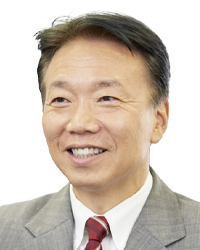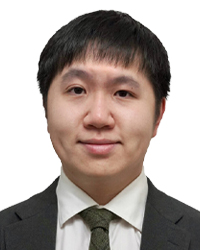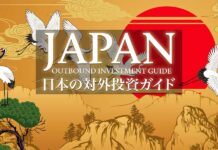Whether a Japanese patent covers an overseas server was litigated in Dwango v FC2 (The IP High Court, En Banc, 26 May 2023). The patented system has server and user terminals. Although FC2, a US company, provided streaming media services with real-time user comments from the server in the US, Dwango prevailed.
The system was “made” when the terminal accessed the server. When the terminal receives files from the server, the server and terminal are connected, and comments can be overlaid on the video in the browser of the user terminal. A new system with functions that satisfy all the requirements of the claim is “made” at this point.
When the server is overseas, it may still infringe a Japanese patent.
PART 1: DOMESTIC ACTS GUIDELINES
The IP High Court has provided domestic acts guidelines after soliciting amicus briefs. When the server is outside Japan, the following four factors should be considered for analysing whether an act (making) is performed in Japan.

Managing Partner/Patent Attorney
Ryuka & Partners
Tokyo
–
Certified to practice IP litigation
Japan
–
Attorney at Law
Ryuka & Partners
California
Tel: +81 3 5322 6375
Email: info@ryuka.com
COURT ANALYSIS
- The specific manner of the act. Each file is sent from the server in the US to a user terminal in Japan. Since transmission and reception (transceiving) are performed simultaneously, and the defendant’s system is completed when a user terminal in Japan receives each file, the said transceiving is considered performed in Japan.
- Functions and roles played by the elements in Japan. The user terminals in Japan fulfill the claimed functions of the judgment unit and the display position control unit, which are necessary to ensure that the comments displayed on the video do not overlap, realising the primary function of this invention.
- Where the effect of the invention is provided. The defendant’s system can be used domestically in Japan via user terminals, and the effect of the invention – improving the entertainment value of communication using comments – is realised in Japan.
- Impact of the use of the system on the patentee’s business. The above-mentioned domestic use in Japan affects the economic interests that the appellant obtains from the domestic use of the invention.
As a result, the court found that the act of making the system was performed in Japan, and found the infringement.
PRIOR CASE
The IP High Court rendered another decision over the same parties (No. (ne) 10077 of 2008, 20 July 2022) (Patents: 4734471 and 4695583).
In this decision, the court found that the distribution of the program from a foreign server to a Japanese user infringed the program claim. It also indirectly infringed the terminal claim because the program was used only for making the terminal.
However, the court did not find direct infringement of the terminal claim because “making” the terminal required program installation by the user, and it is also the user who “used” the display device.
The En Banc decision is more aggressive.
OUR SUGGESTIONS

Chinese Attorney at Law
Ryuka & Partners
Tokyo
Tel: +81 3 5322 6375
Email: cases.to.jp@ryuka.com
Obtaining system patents. The authors suggest claiming a system with the server, especially if the terminal is not inventive enough.
If the server may be located outside Japan, the authors suggest you describe terminal operations in the claim realised by accessing the server. This is because if the functions played by terminals in Japan are small and the server realises most functions, the system might not be considered made in Japan.
Obtaining Terminal patents. It was found that a system consisting of a server and a terminal was “made”. Terminals will also be found “made”. Therefore, even if the terminal is just a general purpose PC or cell phone, and the invention is implemented only when a specific server is accessed, the authors recommend actively acquiring rights to the terminals. The reason is that an infringement is more readily proved without considering the domestic acts guidelines.
Considering the shift of functions between servers and terminals. System inventions often work even if the functions shift between servers and terminals. In response to the decision, competitors may avoid infringement by shifting the functions between servers and terminals. Try to claim what the system does without specifying what the terminal or server does.
PART 2: RESTORATION FOR LAPSE
Requirements for restoring a patent application from lapse of time have been relaxed from “legitimate reason” to “unintentional” as of 1 April 2023. Now, only a concise explanation but no evidence is required.
SUBJECT TO RESTORATION
Procedures subject to the restoration (P: patents; D: designs; U: utility models; T: trademarks):
-
- PCT national entry and translation (P, U);
- Paris priority (P, D, U, T);
- Examination request (P); and
- Annuity/renewal after the six-month grace period (P, D, U, T)
PRIORITY RESTORATION TIME LIMIT
-
- 14 months from the priority for Paris route applications;
- One month from the translation due date for the PCT route.
If the translation of the application was not filed in time, the restoration of the translation filing must be separately requested.
For other restorations, the earlier of:
-
- Two months from the date the restoration action could be taken;
- One year (six months for trademarks) from the original due date.
LIMITATION OF RESTORED RIGHTS
If patents/trademarks are restored from failure of annuity payment/renewal within the six-month grace period:
- Patent rights are ineffective to the products imported into or, produced or acquired in Japan after the six-month grace period and before the restoration;
- Trademark rights are ineffective against the use of the trademark after the six-month grace period and before the restoration.
UNINTENTIONAL SITUATIONS
The following situations will be considered intentional, therefore restoration is not available:
- Change in company policy after the lapse of time;
- Payment delay by a local agent;
- After business closure, the successor decided to resume the business; and
- Lack of co-ordination with co-owners.

22F, Shinjuku L Tower,
1-6-1 Nishi-Shinjuku,
Shinjuku-ku, Tokyo 163-1522
Tel: + 81 3 5339 6800
Email: info@ryuka.com
www.ryuka.com





























